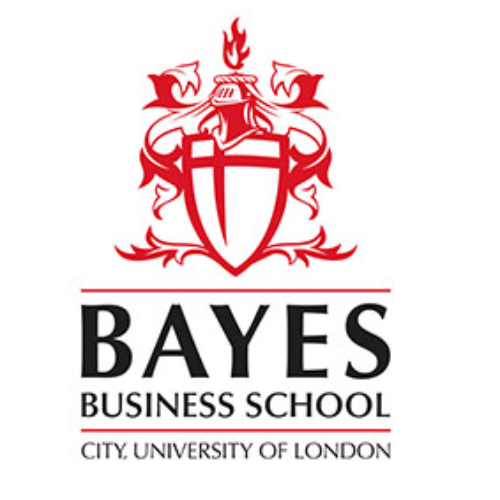Cass MBA students are feeling more confident about their career progression thanks to a new partnership
Do you ever sit at work twiddling your thumbs? Is the weekend the light at the end of every week’s tunnel?Finding a career after your MBA that energizes you and drives your productivity can feel like searching for a needle in a haystack. On top of that, what if the career you planned to align yourself with wasn’t the one that best captured your skillset?
Career change and career development are two of the main reasons students enroll on MBA programs. It is therefore imperative that, after graduating, their return on investment is seen in the form of an invigorating career.
At , the careers and professional development service is aware of the demand for career satisfaction post-graduation. As part of their careers program the school has recently partnered with Strengthscope—a strength assessment tool—with the aim of consigning career dissatisfaction to the history books.
Jenny Portalska, head of MBA careers at Cass Business School, explains that tapping into Strengthscope is part of the school’s understanding of its students’ long-term aspirations.
“They want from the MBA a transformational experience,” she says. “They want to develop their career. Students will want to make significant changes; often changing role, sector, and/or location.”
Finding a future career that really focuses on what energizes them can provide long term career satisfaction. Students must be able to sell themselves to employers in a different way when making a career change, and Cass works with them on how to sell their transferable skills and offers support throughout their career transition.
“We help people have more honest, authentic conversations about who they really are rather than who they think they should be, and identify the career path that is best for them,” says Dr Paul Brewerton, Strengthscope’s managing director.
Strengthscope’s online strength assessment system deep-dives into the students’ true motivators. It identifies their top strengths and enables them to articulate more clearly to potential future employers what they will bring to their organization, and how their idiosyncrasies differentiate them from other candidates.
There are 24 work-based strengths. Paul says that the likelihood of having the same Top 3 in the same order as anyone else is 1 in 12,000; chances of getting same Top 7 in same order as anyone else is 1 in 1.3bn. “It becomes unique, and that’s where people’s brains start to click.
“Having people feel a greater sense of ownership for who they are means they recognize the career path, role, and organizational culture that is the best fit for them,” Paul explains. “By playing to your strengths you are more likely to feel engaged and have a positive experience at work, which can increase performance and results by 70% plus.”
It also helps organizations identify candidates who are sturdy enough to navigate change, and resilient enough to take the knocks that inevitably come with that. They will be more confident hiring people they know can seamlessly move role, department, or even organization, because that reassurance will have been articulated at the interview stage.
There is a caveat with strengths though, Paul explains. Something Strengthscope also helps students identify. “It’s about understanding risk areas, overdrive,” he says. “Energy can blow over itself, so you could over consult or get involved with too many projects and not do justice to them.
“So, knowing how to control that is important, especially in more senior roles, where it’s more likely that risk areas will show up.”
Strengthscope has had resounding success with the students. At the start of their MBA (Full-Time MBA class of 2017), 41% of students said they felt able to apply their strengths in selecting a fulfilling career. Afterwards, that figure was 94%.
75% of Cass MBAs are now confident they will find future roles that fit with their career goals, up from 27% at the start of the program.
61% of MBAs at the start of the Cass MBA felt very confident in communicating their strengths and abilities. That figure is now 92%.
And 82% of students now feel very confident in using their strengths in a new industry or sector, up from 57% at the start of the MBA.
From the beginning of the , the infrastructure is in place to take students from enrolment to long-term career development. During the first two weeks of the program, students work extensively with the careers and professional development department to try to really understand themselves—what do they want to carry forward from their past, and what do they want to change?
One day per week is also dedicated to careers and professional development on the Full-Time MBA, where students work on building professional development skills and goals for their future career.
The skills employees demand still revolve around communication, teamwork, and leadership. However, Jenny admits that in line with technological advancement there is an emphasis on being comfortable with change, innovative, and digitally literate.
She explains that this coincides with the coalescing of finance, technology, and consulting as career destinations. “What has changed is that within consulting there is a lot more focus on fintech and technology in general,” she says.
“Also, the disruptive brands that weren’t around seven-to-eight years ago—Uber, for example—they are really changing things.
“The work we do with Strengthscope provides students with the clarity on what energizes them, what skills they want to take forward in their future career and how to differentiate themselves– and in a continually changing jobs market, this is key.”
Student Reviews
Best Journalism school in Europe
When I first stepped onto the campus of City, University of London, I knew I was in for a ride - and not just on the Tube! With its vibrant energy and an impressive repertoire of programs, City U became my home away from home.
The Journalism program was kind of a big deal. Rumour was that we were the best in Europe!
The lecturers were not just experts in their field; they’re practically journalistic royalty. They were invested, passionate, and had a knack for turning the most flat press release into a riveting news story. With their guidance, I’ve learned to navigate the chaotic world of media like a pro.
The campus was a melting pot of every culture, being that we had such a diverse international crowd.
Being in the heart of London, I had the world at my fingertips - there was always a new corner to explore, a hidden gem of a cafe to discover, or a street performer!
City, University of London wasn't just a university; it was a chapter in my life story that I’ll never forget.
Learning environment
The teacher-learner ration is manageable, giving each learner a chance to gain personal attention. It is also easier following up on the progress of a student, as the numbers per class is not large. the conducive environment for learning includes clean classes, standard desks, world class instructional facilities and the opportunity to engage lecturers even after their sessions. The team spirit at City is above board, with learners getting chance to learn both from instructors and colleagues. This is the university of choice; the place to be.
Classes
I liked that each class had a manageable number of learners, making the professor-learner ratio favor knowledge acquisition. I also liked that study schedules were manageable, and not overwhelming. The focus on talents and gifts even within the learning environment makes it possible for learners to achieve the best of their potential, and this has worked to the advantage of those that have schooled at City, University of London
Classes
The diversity at City University facilitates interactions and is a direction toward the unity of the world. The classes are well built to match the number and needs of all students regardless of the elements of diversity that set people apart. The use of technology in delivery makes learning even more interesting and achievable. At City University there is no distinction pegged on the issues that make people unique.
professors
The team of lecturers at the Uiversity are well experienced. Their level of insight and the methodologies of delivery works for the interes of the leaeners. My learning experience was largely boosted by the level of knowledge of the professors at the institution, and their passion to transfer the same to learners. I appreciate every class I attended because of the level of insight I was able to gather
The best university I’ve been to
The campus and the people I've met have made it a wonderful experience. I was reared in a small town with a graduating class of only 88 individuals, so moving to City University was a huge adjustment for me. My dorm has more residents than my whole high school combined! I enjoy the atmosphere here, and everyone is so friendly. Outstanding academic options and a stunning campus. Really great from beginning to end. The educators genuinely love what they do, and the students are ready to learn. On or around college, there is always something to do with friends, and the social scene is particularly warm.
Bayes Business School
As a student at City university attending Bayes Business School I would totally recommend choosing this university as the experience is exceptional with great social networking opportunities . Professors are significantly helpful, delivering with excellence and professionalism. Everyone is happy to help and make you feel welcomed in such an esteem university as City, offering exceptional development and guidance through out the course.
Economics and Politics
Incredibly amazing university, the way they polish students and help them boost their morale and think intellectually is worthwhile. Many universities have international partnerships to allow exchanges between their students. The most obvious subjects for these opportunities would be those that involve languages, and the study of people and places.
Clinical biology
I really like it it’s perfect for me with not too many people and not too few either. All the modules are amazing. I love the toy bar. I love all the societies that I’ma part of. Especially the colour Bollywood society
Unlocking My Potential at City University London
My time at City University London was truly transformative. The university's vibrant community and diverse extracurricular activities allowed me to forge lifelong friendships and professional connections that extend beyond the classroom. I was impressed by the university's commitment to academic rigor, character development, and personal growth, which created an ideal environment for me to reach my full potential. The research-driven and industry-relevant curriculum provided me with a solid foundation in international business, while the dedicated faculty and staff offered invaluable guidance and support. I feel grateful for the well-rounded education and holistic experience that City University London offered, preparing me for success in my career and beyond.
Rather interesting
The academics are tough, but in a good way. The professors are experts in their fields, so you know you’re learning from the best. They push you to think for yourself and really dive deep into the subjects. But it’s not all about hitting the books; London itself is like an extension of the campus. You’ve got museums, galleries, and just the general buzz of the city to keep you inspired.
Urban campus life
At the University of London, I have experienced dynamic and diverse academic environment where I was challenged by rigorous coursework. You will have the flexibility to choose from the wide range of courses, participate in numerous extra-curricular activities and take advantage of the many opportunities
Studying at a top level
At City, University of London, academics are known for their dedication to student success. They employ interactive teaching methods, generally in small class sizes, and prioritize personalized learning above traditional lectures. Group projects, debates, and hands-on activities help students stay involved and retain knowledge. What stands out is the instructors' frequent check-ins with students, whether through additional study sessions, comprehensive feedback, or simply being available to answer queries. They demonstrate a genuine interest in students' personal and academic development, making their assistance absolutely outstanding.
This place is amazing
My experience at City, University of London, has been great. The lectures are where it's at; our presenters are industry specialists who transform complex subjects into captivating narratives that leave you wanting more. They are enthusiastic about teaching and employ novel approaches to bring their subjects to life. I've witnessed firsthand their desire to go above and beyond, whether by staying late after class or sharing additional materials. They are committed to ensuring every student's success, and it is evident that they are invested in our educational path.
Genuinely assistance and care
City, University of London, has been a fantastic experience for me. The instructors are specialists in their subjects, and their passion and participation in teaching is encouraging. They are constantly accessible to answer questions and offer assistance, making the learning experience genuinely exceptional. The school and surrounding region are great, with a lot to do and see. I've enjoyed my time here and value the high-quality education I've gotten. The university's commitment to providing entertaining and helpful lectures has made a significant difference in my academic career.
The value of good education
My experience at City University, London, has been extraordinarily beneficial. The lecturers are kind and actually care about their students' success, going above and beyond to ensure we understand the content. The academic environment is excellent, and the university fosters a strong sense of community. The professors genuinely care about their students, and there are numerous tools accessible to help us throughout our studies and beyond. I am glad for the opportunity to study here, and I value the university's commitment to student success.








